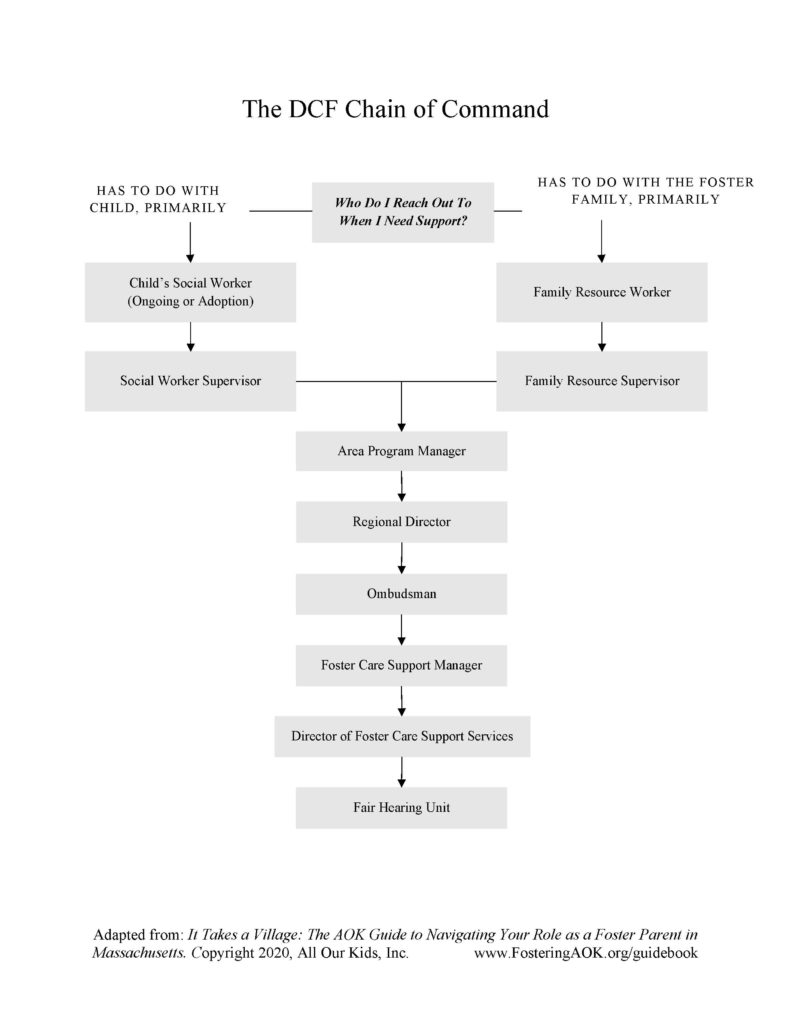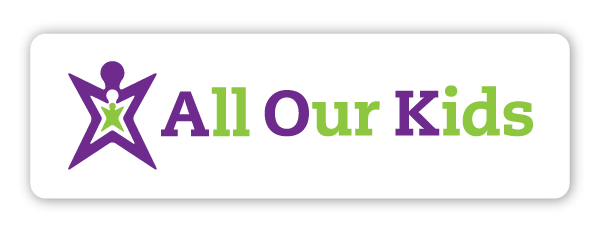How to Advocate for Yourself as a Foster Parent
Adapted from AOK’s Guidebook, “It Takes a Village“

Being a part of the foster care system is never an easy or straightforward experience. Inevitably, you will encounter challenges you weren’t expecting, surprises you’re not sure how to handle, and difficult situations that leave you wondering about the best course of action. Of course, we won’t be able to review every single possible scenario here, but we do review the steps you might take if you feel that DCF is coming short of meeting its responsibilities to you, your child, or the case.
When to Use the DCF Chain of Command
Many DCF social workers are extremely organized, effective, and good at their jobs. It can be a real pleasure to work with these individuals, because they understand your needs and concerns, and it feels like you’re on the same team. Unfortunately, this isn’t always the case. Sometimes our calls or emails go unanswered, we expect one person to show up at our door but get another, or worse – no one shows up for a scheduled visit at all! Other times, social workers can be disrespectful, difficult to work with, will refuse to give you information or access to resources you know you are entitled to, or….. The list goes on. In a large state bureaucracy of so many employees, they are simply not all going to be effective and easy to work with. Additionally, we all know how overworked these DCF staff are, and sometimes they really just don’t have the opportunity to get back to you in a timely fashion. Whatever the case, there is always someone else to go to if you feel like you need to go up a chain of command.
Unlike many agencies or businesses, the DCF chain of command expects foster parents to raise issues, concerns, or time-sensitive needs to worker’s supervisors (and sometimes their supervisors). It is not uncommon for a foster parent to reach out to an ongoing worker’s supervisor, for example, when they need to know if a visit will occur and they can’t reach the ongoing worker. Or a foster parent might need emergency respite and require assistance from the resource supervisor because their resource worker isn’t immediately available. At other times, you might have exhausted the possibility of working out a challenging issue or situation with an adoption worker and might need to involve their supervisor (and their supervisor as well), if you don’t get resolution.

Similarly, although the vast majority of issues can be resolved with the front-line social workers (resource worker, ongoing, adoption) or their immediate supervisors, you certainly have the right to continue up the chain of command if your needs or concerns have not been addressed to your satisfaction. Here is the list of people who should contact, typically in this order. You will either start with your resource worker or the child’s ongoing/adoption worker, depending on the issue, and whether it’s a matter more having to do with family resource or a concern about the child.
When Not to Use the DCF Chain of Command
Unless there’s a time-sensitive matter, you should not use this chain of command if you don’t absolutely need to. For example, you shouldn’t seek assistance from your resource worker’s supervisor simply because you prefer working with that person over your resource worker. Although this might be true, the chain of command exists for a reason. You do not want to be going over people’s heads for simple disagreements, or without giving staff an opportunity to meet your need.
